Candice Howarth
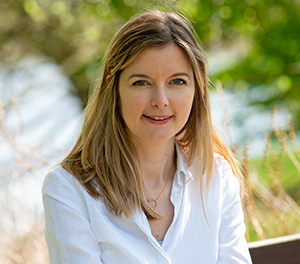
Candice Howarth is Research Director at Quadrature Climate Foundation. Prior to this she was a Distinguished Policy Fellow and Head of Climate Adaptation and Resilience at the Grantham Research Institute at LSE.
Her research interests focused on how the co-production of knowledge and science communication can be used to better inform decision-making in the context of climate resilience and sustainability challenges. She has extensive experience in policy analysis and qualitative research design, delivery and analysis of semi-structured interviews, workshops and focus groups. She has an interdisciplinary background in climate policy and pro-environmental behaviour with degrees in meteorology (BSc), climate change (MSc) and a PhD in climate change and pro-environmental behaviour.
She led research on resilience and preparedness to heat risk, communication and narratives of climate action, and models of local climate action. She led a British Academy Fellowship in collaboration with the British Red Cross looking at integrating adaptation and mitigation measures to enhance community preparedness to extreme heat. She was the PI for the NERC-funded £1.9 million ATTENUATE project, the LSE lead for the MRC-funded £7.4 million HEARTH Hub, and the UK lead for the Horizon 2020 €6,2 million healthRiskADAPT.
- PI for £1.9 million NERC-funded project: ATTENUATE – Creating the enabling conditions for UK climate adaptation investment
- LSE lead for £7.4 million MRC-funded project: HEARTH: National Hub on Net Zero, Health and Extreme Heat
- UK lead for Horizon 2020 €6,2 million healthRiskADAPT project
- PI to £130,000 completed British Academy funded Achieving Climate Resilient Net Zero project
- PI to £3.5 million completed NERC-funded project: Place-based Climate Action Network (PCAN)
- Co-chair of Adaptation Community of Practice, and member of the London Heat Risk Group
- Co-led the LSE Grantham Research Institute’s Heat Resilience Hub
- Contributing author for the UK Climate Change Risk Assessment
- Associate Deputy Editor of the journal Climatic Change and sits on the Editorial Board of the journal Environmental Communication.
She regularly advises a range of international, government and non-governmental organisations, and she is a frequent speaker at policy, practice, third sector and events. Her work has been covered by BBC News, Sky TV, Channel 4, BBC Radio 4, Good Morning Britain, LBC, Daily Mail, Daily Mirror, Daily Express, The Metro, Evening Standard, Yahoo, The Independent, Lancashire Telegraph, The Global Herald, North Wales Chronicle, The Argus, MKFM and Wave FM.
Background
Prior to joining the Grantham Institute in 2019, Candice was a Senior Lecturer in Sustainability and Climate Change and Impact Lead at the University of Surrey. She was also the Knowledge Integrator for the Centre for Evaluation of Complexity Across the Nexus (CECAN) and previously led the Climate Action research theme at the Global Sustainability Institute.
She has worked in UK government (Department of Energy and Climate Change, Cabinet Office), a number of years in academia (Surrey, Anglia Ruskin, Imperial, Cambridge), conducted work for the European Commission, and has collaborated with a number of UK and international organisations.
Research Interests
- Integration of climate adaptation and mitigation
- Improving resilience to heat risk and the role of narratives
- Communications, co-production, pro-environmental behaviour and the science-policy interface
- Local and national public engagement and action on climate change
- Assessment and evaluation of climate policy in the UK
Research
Research - 2025
This study looks at how different factors and responses to heatwaves interact, using the UK's 2022 heatwave as a case study. Read more

Under a changing climate, heatwaves are expected to become more frequent, prolonged and extreme, posing substantial risks to populations around... Read more

This paper, based on expert interviews and focus groups with key decision-makers considers the implications of July 2022 heatwaves in the UK. Read more

This study quantifies the impacts of heat stress on the UK labour force, focusing on labour supply, labour productivity, the health of workers, and how adaptation is reducing the negative impacts. Read more

This paper considers the practical application of integrating mitigation and adaptation in the context of responding to heat risk. Read more

Research - 2024
The authors of this paper provide a report on the Hot Brain 2 meeting that took place at the University College London (UCL) Queen Square Institute of Neurology on 16 May 2024. Read more

This paper presents the proceedings of an event held at the UK Royal Geographical Society (with IBG) (RGS-IBG) in February 2024, exploring the path ahead for UK climate policy. Read more

This paper seeks to assess the capacity of climate commissions to affect meaningful climate mitigation and adaptation action, to understand how they interact with existing climate governance structures and to consider their longer-term sustainability. Read more

The results of a nationally representative sample of UK residents on their perceptions of heat risk are discussed in this paper, showing the need to fill knowledge gaps and prepare the country better for this hazard. Read more

This paper considers how ‘climate policy integration’ (CPI) can be better implemented in the context of responding to extreme heat, a climate change impact and risk that is growing in international importance. Read more
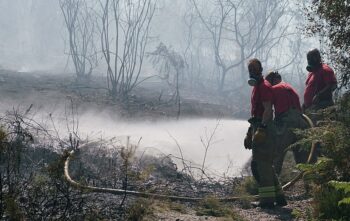
The article considers the role of place-based climate action and draws on the experiences of the UK Place-based Climate Action Network (PCAN). Read more

This paper draws on qualitative interviews with an array of individuals both inside and outside climate commissions in the UK, and utilises Cash’s theoretical framework of ‘salience, legitimacy and credibility’ to assess how effective climate commissions are in engaging the public to co-produce local climate action. Read more

This paper assesses the state of heat risk governance in the UK through an analysis of the Adverse Weather and Health Plan (AWHP) launched in 2023. Read more

This paper analyses the UK’s response to the heatwaves of summer 2022, using a combination of Forensic Disaster Analysis and Fuzzy Cognitive Mapping. Read more
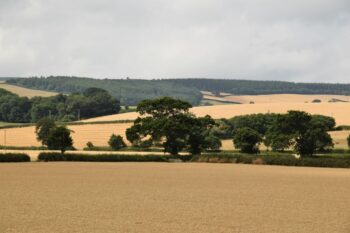
This comment article argues that in order to tackle climate change we need to integrate adaptation and mitigation in policy... Read more

This article highlights the impacts of heatwaves in the UK and outlines some of the adaptation and mitigation policies that would help better prepare the country for heat risk. Read more

The authors of this paper argue how climate risk assessments need to further consider the social and political aspects of place-based climate risk to ensure more effective adaptation policy outcomes. Read more

Research - 2023
This letter was written in response to an editorial in the British Medical Journal on the need to join up... Read more

This review focuses on how insights from behavioral and attitudinal studies about heat risk responses can inform communication approaches. Read more

Research - 2022
Through a high-level analysis of authors of the IPCC’s Working Group II reports and special reports of AR6, the authors of this paper explore the evolution of representation of practitioners in IPCC WGII author teams from AR5 to AR6. Read more
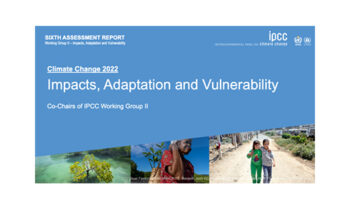
Research - 2021
Reflecting on two studies, this paper discusses the benefits of (and barriers to) encouraging more active and sustained engagement between climate action stakeholders so as to try to actively blur the boundaries between science and policy and, in doing so, invent new epistemological communities of practice. Read more

This open access book brings together a collection of cutting-edge insights into how action can and is already being taken against climate change at multiple levels of our societies, amidst growing calls for transformative and inclusive climate action. Read more
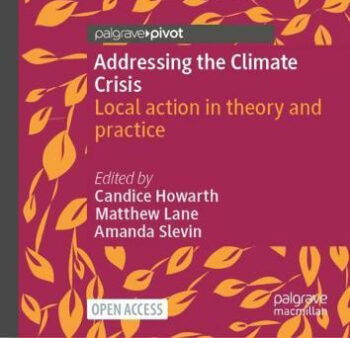
Through a comparative case study of two processes that ran in the UK in 2019 (the Leeds Climate Change Citizens’ Jury and the Oxford Citizens’ Assembly on Climate Change), this paper investigates how far citizen assemblies and juries are increasing citizen engagement on climate change and creating more citizen-centred climate policymaking. Read more
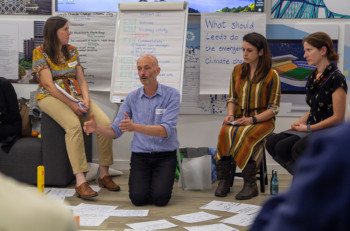
Using interview data with experts working on climate emergency declarations research across the UK, the authors of this paper critically discusses four themes that have underpinned and catalysed the changing geographies of civil-state relationships within the climate emergency and what this may mean for future global climate governance. Read more
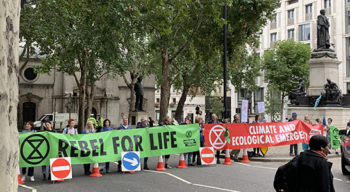
Focusing on London, UK, this paper presents evidence collected via semi-structured interviews with experts and practitioners involved in the propagation of climate emergency declarations to critically explore how and why these declarations emerged, and the various different roles they are perceived to play for different local actors. Read more
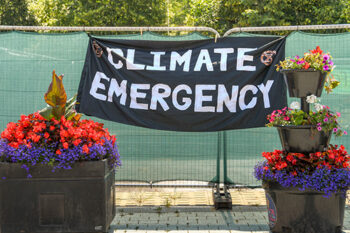
Against the backdrop of increasingly fragmented and poly-centric urban climate governance, this article examines the establishment of city climate ‘commissions’ as an experimental means of addressing the challenge of climate change at the city-scale. Read more

Perceptions of climate change and associated risks are complex and require greater consideration of the context in which behaviours are formed... Read more

Research - 2020
Using an analysis of UK decision-makers managing and responding to heatwaves and flood risks, this paper argues how more robust local evidence is needed to inform decision-making regarding adaptation options for enhancing local resilience. Read more

This paper draws lessons from the COVID-19 crisis for climate change. Read more

This Primer discusses the heterogeneous manner in which climate change messaging is received by different audiences, how social scientific approaches could help to better tailor climate change messaging to this varied landscape, and how attempts to close this gap must consider the emotional and affective dimensions of climate messaging. Read more

Research - 2019
This paper adds new insights to the relationship between city-regionalism, the territorial logics of the competition state and how climate... Read more

Policy
Policy - 2025
This report provides practical next steps for better protecting workers against the effects of high temperatures, informed by a 2,000-person survey and an expert roundtable. Read more
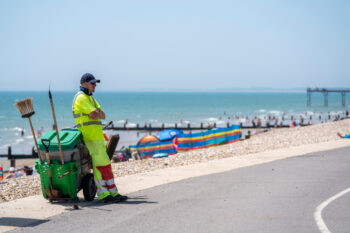
This report focuses on the exploration of existing low-emission cooling solutions to extreme heat through the review of international and UK evidence, with a particular focus on London but with 14 international case studies. Read more
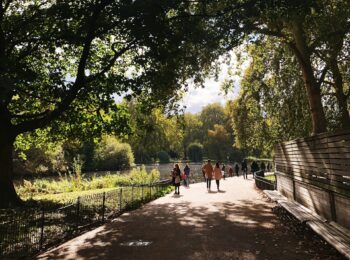
Event note from the inaugural ‘Adeline Talks’ workshop which brought together experts to discuss the establishment of a National Heat Risk Commission for the UK. Read more

This study examines the integration of climate and health policies in the United Kingdom based on 42 expert interviews. Read more

Summary of a workshop held in October 2024 that explored how to co-develop a strategy for adopting climate-resilient net zero responses to extreme heat through education and awareness-raising in Greater London. Read more

Policy - 2024
This report presents a review of existing heat metrics, provides detailed analysis of heat risk for seven building architypes and shares the stories of residents, workers and visitors in the London Borough of Islington who are affected by heat risk. Read more

This report chapter outlines the challenges and benefits of seeking to integrate climate mitigation and adaptation strategies in urban settings. Read more

This is a response to an open consultation on proposed reforms to the National Planning Policy Framework and other changes to the planning system. Read more
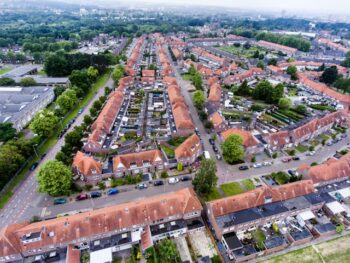
This Final Report covers the ESRC-funded activities of PCAN between 2019 and 2024. Read more

This report presents insights on heat resilience policy and practice in the UK to inform future preparedness and responses to extreme heat, incorporating the experiences and views of decision-makers and practitioners who worked on the frontline of the 2022 heatwaves across England. Read more
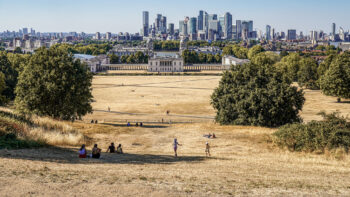
Policy - 2023
Report of a workshop of Climate Commissions, Partnerships and Local Authorities in the East of England. On 4th July 2023... Read more

This report consists of a submission to the call for evidence by the Environmental Audit Committee on heat resilience and sustainable cooling. Read more

This report takes stock of local climate action in the UK as of early 2023 and summarises the experience of the Place-based Climate Action Network (PCAN) over the last five years, through analysis, reflections, survey evidence and case studies, providing recommendations to a range of stakeholders. Read more

This policy brief sets an agenda for how to improve England's response and resilience to extreme heat events, learning from the 2022 heatwave experience. Read more

This publication forms the chair’s report for the Independent Expert Advisory Group convened by the Climate Change Committee to support... Read more

Policy - 2021
Written evidence submitted in 2020 to the House of Commons Environment, Food and Rural Affairs Committee Inquiry on Flooding, whose Fourth Report was published on 8 February 2021. Read more
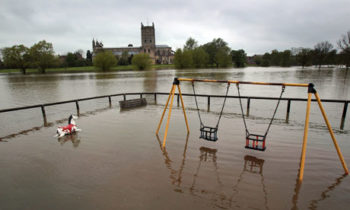
Books
Books - 2021
This open access book brings together a collection of cutting-edge insights into how action can and is already being taken against climate change at multiple levels of our societies, amidst growing calls for transformative and inclusive climate action. Read more

Events
Events - 2021
Events - 2020
News
News - 2025
Candice Howarth details some of the complexities involved in increasing the country’s preparation and resilience to the growing threat of heatwaves, including the need to ensure that solutions do not contribute additional greenhouse gas emissions. Read more
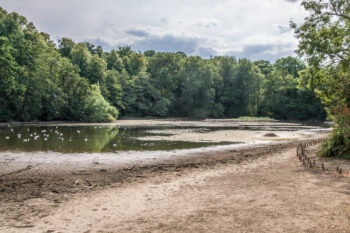
This commentary explains the rationale for creating a metric to measure overheating risk in buildings and key findings from work conducted in the London Borough of Islington by the Institute with Shade the UK. Read more

News - 2024
Successive UK governments have failed to grasp the urgent need to adapt to the risks posed by a changing climate. This commentary sets out what needs to change and how this can be facilitated by next June’s Spending Review. Read more

This television news piece reports on the wildfires that have broken out in the Greek capital Athens. The report includes... Read more

This article considers that arguments for and against giving names to severe heatwaves, as is done for hurricanes, as part... Read more

The Heat Health Alert system plays an important role in ensuring the UK responds appropriately to heat risk during summer. The nation should now adopt a forward-looking approach to ensure it is fully prepared for further heat events. Read more

This BBC Radio 4 report considers the impact of extreme weather conditions in the UK and the need for governments... Read more

News - 2023
This statement from the Blueprint Coalition (a partnership of local government, environmental and research organisations) calls on the UK government to retain its key net zero commitments. The statement includes quotes from Candice Howarth. Read more

In this commentary for the Academy of Social Sciences Candice Howarth uses social science research evidence to demonstrate why we... Read more

This news article reports on the Met Office's annual State of the UK Climate report. The article includes quotes from Candice Howarth who discusses the need to prepare more for heatwaves like those that occurred in the summer of 2022. Read more

Candice Howarth explains why the UK is not prepared for the increased incidence of extreme heat caused by climate change and what needs to change. Read more

This article reports on the recent heatwaves. The article includes quotes from Candice Howarth. Daily Mirror, 18 July 2023 Read more

This news article discusses the likelihood that heatwaves, like those that occurred in the summer of 2022, will become more frequent. The article includes quotes from Candice Howarth. Read more

This news article reports on the potential for future heatwaves in the UK, similar to those that occurred in the summer of 2022. Read more

One year on from record breaking heatwaves in the UK this article considers what can be done for future extreme... Read more

In this interview for Channel 4 News Candice Howarth discusses the impacts of increasing heatwaves on everyday life in the UK. Read more

This article reports on estimated number of deaths as a result of the 2022 summer heatwaves across Europe. Read more

This news article reports on a new study by the Grantham Research Institute which suggests that England is not prepared for future heatwaves like those seen in 2022. Read more

In this interview for Sky News Candice Howarth discusses a new report on England's preparedness for future heatwaves. The report was based on a study of the 2022 heatwaves. Read more

This commentary post outlines some of the main findings from a project to evaluate the impact of the Belfast, Edinburgh... Read more

News - 2021
The Place-Based Climate Action Network (PCAN) has published its first book Addressing the climate crisis: Local action in theory & practice in Open Access format. The publication brings together cutting-edge insights from over 30 authors which show how action can and is already being taken against climate change. Read more

News - 2020
The UK government has announced an all-male COP26 leadership team. A line-up that includes women would not only be more representative, but could also be more effective and trusted, argue the authors of this commentary. Read more

Candice Howarth and Matt Lane consider how we can better align knowledge on climate change resilience with the needs of local decision-makers, including by improving the accessibility of the UK’s Climate Change Risk Assessments. Read more
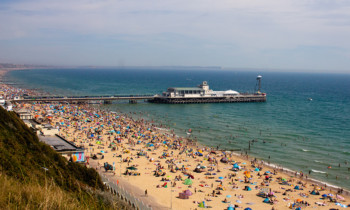
A new paper draws lessons from COVID-19 for the fight against climate change, arguing that people are willing to change their behaviour as long as there is a clear social mandate. Candice Howarth summarises the analysis. Read more

PCAN (Place-based Climate Action Network), 28 February Read more

This article offers hints and tips for climate scientists and experts seeking to communicate with policy makers and the public. It is based on a recent workshop held by organised by the Royal Geographical Society Climate Change Research Group (CCRG). Read more

News - 2019
Can schools, colleges and universities augment government policy action? Read more


